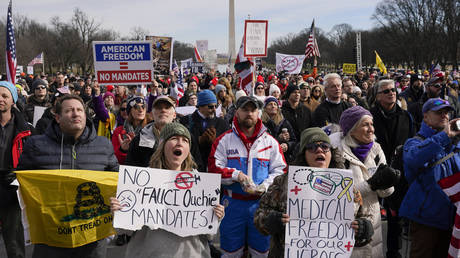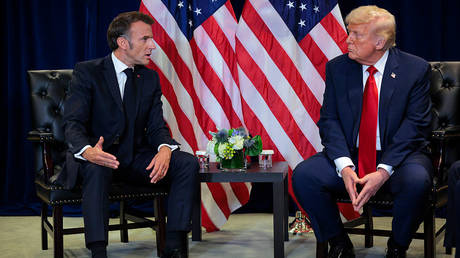
Substack VP argues that there would be “no one left talking” if everyone who was “wrong about this pandemic were silenced”
The Center for Countering Digital Hate, along with several sympathetic newspapers, has launched a campaign to remove “misinformation” about Covid-19 and vaccines from Substack, a popular newsletter site. Substack’s executives say that they’ll defend free expression.
In a report published on Thursday and simultaneously promoted by The Guardian and The Washington Post, the Center for Countering Digital Hate – a pro-censorship NGO based in the UK – sounded the alarm about the millions of dollars that Covid-skeptic and anti-vaccine newsletters are earning on Substack.
These newsletters include ones published by alternative medicine hawker Joseph Mercola and former New York Times writer Alex Berenson, who has linked mass vaccination with rising rates of Covid infection. According to the CCDH’s estimates, both writers pull in a combined $183,000 per month from paid subscribers.
Other writers cited by the CCDH include Dr. Robert Malone, a pioneer in developing the mRNA technology used in Pfizer and Moderna’s vaccines turned anti-vaxxer, and ‘Eugyppius,’ a pseudonymous blogger who claimed that “vaccines don’t suppress case rates at all,” which despite being labeled “misinformation,” appears true based on the data referenced in his post.
Substack allows writers to keep around 90% of their subscription revenue, with the platform pocketing a 10% cut.
“This isn’t about freedom; this is about profiting from lies,” CCDH CEO Imran Ahmed told The Guardian. “Substack should immediately stop profiting from medical misinformation that can seriously harm readers.” On the CCDH’s website, readers are urged to sign a petition, claiming that “People are, right now, dying in ICUs because they saw Covid and vaccine misinformation online.”
Substack’s executives see things differently. “An important principle for us is defending free expression, even for stuff we personally dislike or disagree with,” Vice President of Communications Lulu Cheng Meservey explained. “People already mistrust institutions, media, and each other,” she continued, adding: “Knowing that dissenting views are being suppressed makes that mistrust worse.”
“If everyone who has ever been wrong about this pandemic were silenced, there would be no one left talking about it at all.”
As the coronavirus mutated and scientific understanding of the virus deepened, ideas once regarded as conspiracy theories became common knowledge. For instance, officials in the US and around the world insisted as recently as last summer that vaccination stops transmission of the disease, but now admit that with the new Omicron mutation, “just about everybody” will catch Covid-19 regardless.
Many social media companies still maintain hardline policies on virus-related “misinformation.” Facebook, for example, forbids “claims that the number of Covid-19 caused deaths are much lower than the official figure,” despite CDC Director Rochelle Walensky publicly stating that this technically is the case earlier this month.
However, Meservey insists that even outright false claims deserve a platform. “Who should be the arbiter of what’s true and good and right?” she asked. “People should be allowed to decide for themselves, not have a tech executive decide for them.”




